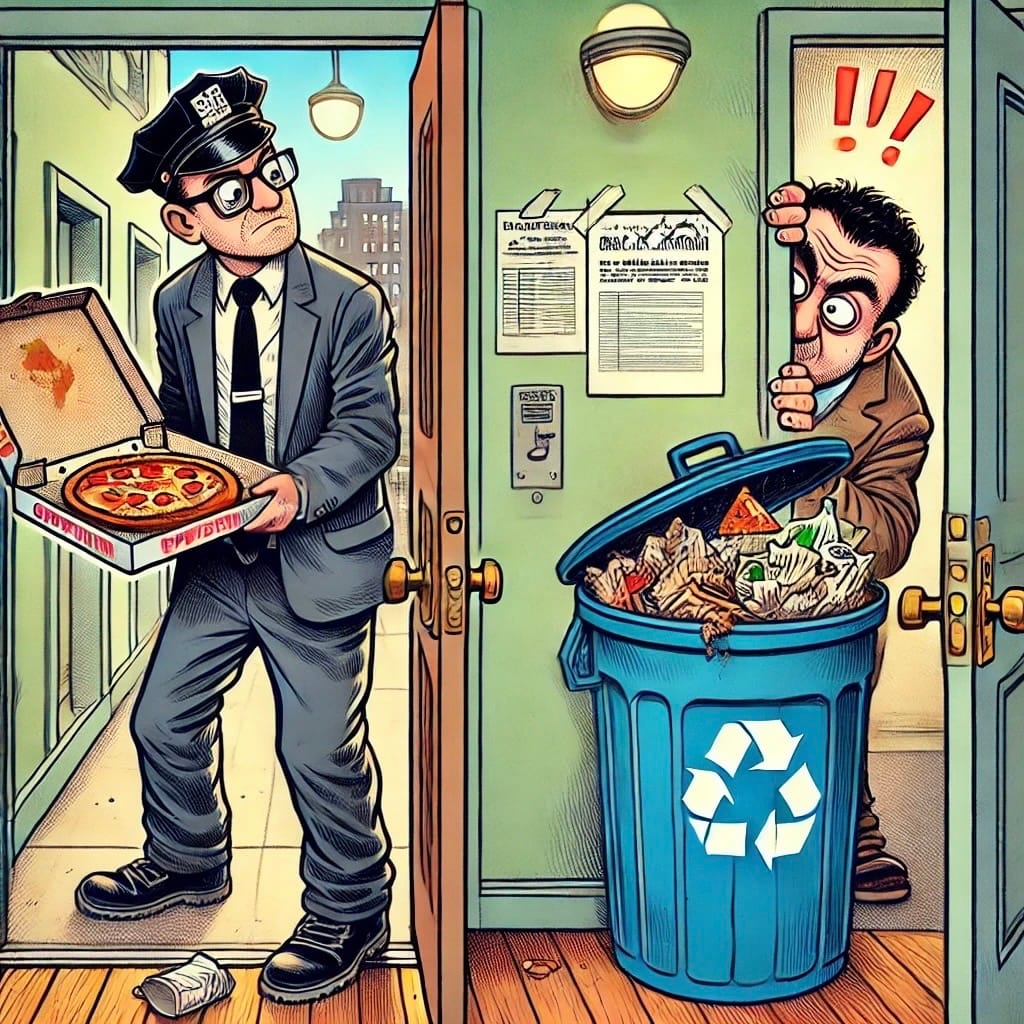Key Point: Starting April 1, 2025, New York City will begin issuing fines if compostable waste is not properly separated from trash. The responsibility falls on building owners, even though they have no control over what tenants throw out.
What’s Changing
The Department of Sanitation (DSNY) now requires all New York City residents to separate compostable waste—like food scraps, yard waste, and soiled paper—from regular trash.
- Compost will be collected weekly, on the same day as recycling.
- Starting April 1, 2025, violations will be subject to fines.
- Buildings with 4 or more residential units must:
- Provide a designated storage area for compost bins.
- Use clearly labeled bins with secure lids.
- Make bins accessible for both tenants and DSNY collection.
What Landlords Must Do
Landlords of buildings with 4 or more units must provide a designated storage area with clearly labeled compost bins.
Complying with the new composting law means taking a few key steps for these landlords:
- Order and Provide a Compost Bin: Either order an official DSNY brown compost bin or use your own container (55 gallons or less) outfitted with a free compost decal.
- Establish a Designated Storage Area: Place the compost bin in a dedicated space on the building’s property—this is the designated storage area. Whether indoors or outdoors, this area is set aside specifically for storing compost bins between pickups. It’s where tenants (or building staff) are expected to deposit their compostable materials and where DSNY will collect the bins on the scheduled day.
- Communicate Clearly: Post clear signage near the designated storage area to inform tenants of what can and cannot go in the bin. This signage should list acceptable items (food scraps, yard waste, soiled paper) and remind residents of the potential fines if improper waste is disposed of.
- Notify and Educate Tenants: Proactively inform tenants about the new requirements. Use notices, building meetings, or email communications to encourage proper separation of compostables from regular trash.
By taking these steps, landlords not only meet DSNY’s definition of a “designated storage area” but also create a system that minimizes the risk of building-wide fines. This proactive approach helps bridge the gap between the law’s expectations and the practical challenges of tenant compliance.
Limitations on Landlord Enforcement
- No Mandatory Inspections: Landlords are not required to inspect individual garbage bags or search through tenant waste for compliance.
- No Individual Fines: DSNY does not provide a mechanism for fining individual tenants. All fines for noncompliance are issued at the building level.
- Collective Liability: Even if only one tenant fails to properly separate compostable waste, the entire building is subject to fines. This means that the responsibility—and the risk—falls entirely on the landlord.
A Quiet Shift in Enforcement
Landlords are being implicitly deputized as enforcers. The City has made the composting rule mandatory but left enforcement logistics to the property owner—without providing tools to control tenant behavior and without offering a safe harbor for “good faith” compliance efforts.
While NYC doesn’t explicitly require landlords to “police” tenants’ garbage, that’s exactly what the policy forces them to do.
Landlords are now in the awkward position of:
- Being held legally liable,
- Without any real authority to enforce compliance, and
- While bearing the risk of fines from tenant misconduct, including potential acts of retaliation.
Some tenants, for instance, might intentionally fail to comply with the composting requirements as a form of revenge—adding insult to injury when disputes arise. This creates yet another layer of risk, where a single tenant's deliberate non-compliance can jeopardize the entire building.
This is a policy gap—a legal burden without legal tools. A fair system should either fine the individual responsible or create a safe harbor for landlords who take reasonable compliance steps. Right now, it does neither.

The Implicit Dilemma for Landlords
The policy gap forces landlords into a difficult choice—either passively accepting the fines or taking measures that effectively turn them into waste enforcers:
Option 1: Accept the risk of fines. This may be tolerable for small violations but not sustainable long-term, especially for repeat offenses.
Option 2: Implement internal enforcement. This may include:
- Signage and education
- Lease clauses about proper waste disposal
- Monitoring or supervising disposal areas
- In the extreme: checking bags or installing cameras (which raises privacy and tenant relations concerns)
Templates for Landlords
Below are practical sample templates and tools to help landlords comply with NYC’s composting law while protecting themselves from unnecessary risk. They are available to paid members:
- Sample Lease Clause: Language that adds composting compliance responsibilities to new leases.
- Sample House Rules Clause: A concise provision you can include in your building’s rules and regulations.
- Sample Tenant Notice: A notice you can send to tenants to help educate them about the new law.
- Sample Sign Text: Clear, bold language for posting above bins to ensure compliance.
- Sample Compliance Checklist: The steps that landlords should now take to comply with the new composting law.
🔑 This post is for paying subscribers only
Sign up now and upgrade your account to read the post and get access to all premium content that is only for paying subscribers.
🔑 This post is for subscribers only
Sign up now to read the post. To get access to the full library of premium content, you must be a paying subscriber.
Already have an account ? Sign in
Hani Sarji
New York lawyer who cares about people, is fascinated by technology, and is writing his next book, Estate of Confusion: New York.


Related News
What Is Age-Friendly New York?
Aug 09, 2025
Form: Updated NY Property Condition Disclosure Statement (Revised Jan. 2024)
Mar 07, 2024
New York County Surrogate's Court Records Will Be Available on WebSurrogate Starting 11/6/2023
Nov 03, 2023